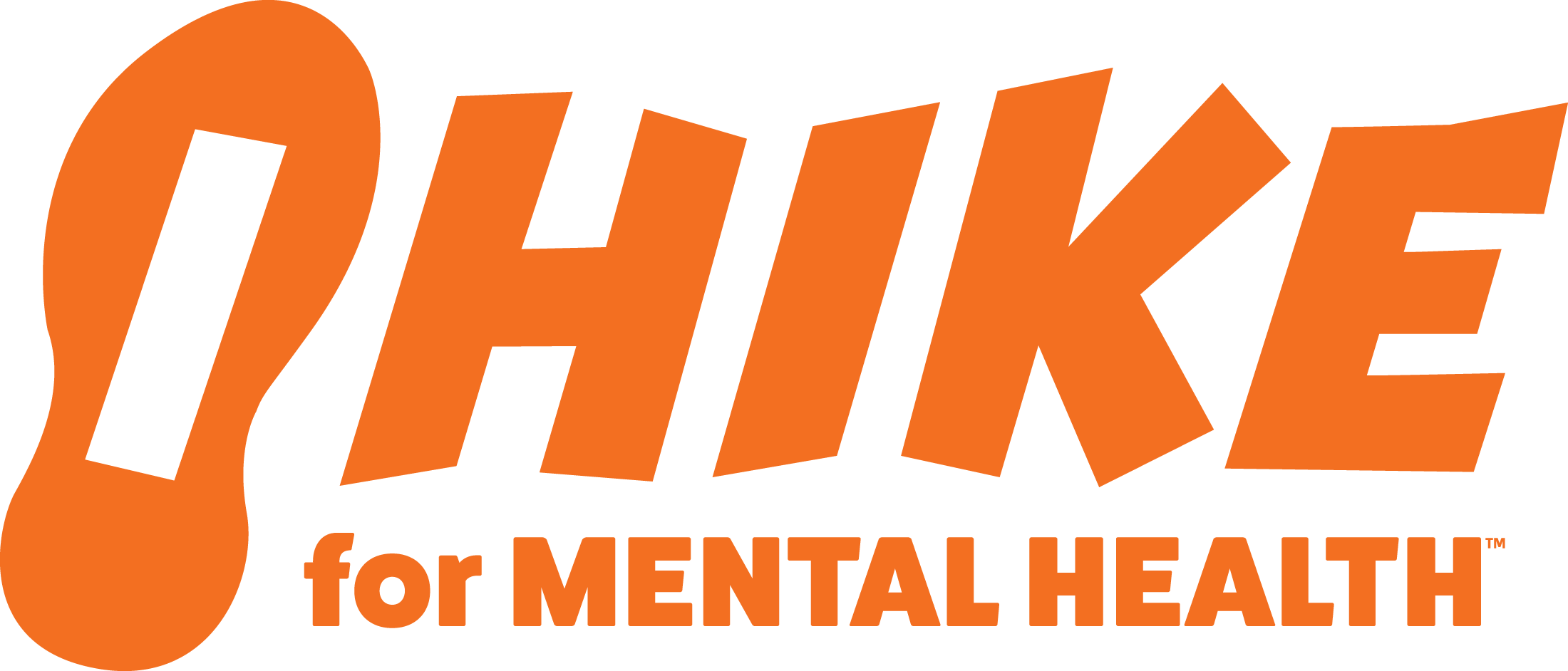Post-trail Depression
As we look back on May’s Mental Health Awareness Month HIKE for Mental Health, and the Pacific Crest Trail Association, want to highlight “post-trail depression.”

My name is Brayden Donnelly and I have been volunteering with HFMH for eight years. Post-trail depression was something I felt before it was something I knew.
I found my way onto the trip of a lifetime to summit Mount Kilimanjaro in Africa. I was blown away by the locals, the sherpas, the guides, my fellow hikers, and the scenery in that part of the world so unfamiliar to me. After summiting the 19,000’ peak, I came home to a gray, cold, and dreary winter. With a limited social circle to turn to, and only a small understanding of my own
mental illnesses at the time, I took to the sleeping bag that accompanied me on that trek to the otherside of the world. I slept in my sleeping bag, on top of my mattress, for the majority of each day, for weeks on end. I was wishing I was back out on the trail. I know now that I was deep in my own post-trail depression.


Many others have written eloquently on this subject. The goal here is not to describe something new, rather, my focus is to create a reminder of what has already been discussed. The consideration of post-trail depression is still relevant, and imperative, for folks coming off of their trail.
What got me out of my post-trail depression, and what gets many others out, is thinking of, and planning for, the next adventure. Other ways to alleviate the experience of post-trail depression may include self care, staying connected with folks you met on your trip, and setting daily goals. It may mean recognizing that you can’t always be on the trail, but that you can always return to the trail. And, it may help to give back to the very trail that impacted you so strongly. Of course, things are not always this simple, and professional counseling is advised and encouraged.

Please, when the time comes, reach out and talk about how you’re feeling, because the chances are that others around you feel the same way. Help HIKE for Mental Health and the PCTA #breakthestigma surrounding mental illness; it all starts with a conversation.
Alyssa Orozco and Chris Rylee of the PCTA’s Communications Team had this to say about post-trail depression:
“We at the PCTA often hear amazing stories about hikers finding mental and emotional healing through their adventures on the Pacific Crest Trail. However, the realities of post-hike depression, while common, are often stigmatized and require thoughtful attention. It is important to always remember that the well-being of the entire individual is essential, and care should be provided before, during, and after the hiking experience.”
One of the best pieces of advice I wish I had before my trip, was to expect the possibility of post-trail depression. This advice would most likely not have stopped it from happening, I may have even gawked at the idea of it existing, but it would have exposed me to the reality of these feelings, and prepared me for the transition off trail. So, this is that nudge, from me, to you, to expect the possibility of post-trail depression at the end of your adventure. And more importantly, this is a reminder that you are strong. You can take on all of the physical and mental challenges the trail has remaining for you, and those that the transition off trail may present to you.
_______________
 Consider signing up your future adventures with HIKE for Mental Health, where 100% of fundraising will go to support mental health research and trail conservation, including the Pacific Crest Trail! A great opportunity, specifically for folks finishing up a hike in the fall, is our annual #hikeOctober event – a challenge to hike and fundraise wherever you call home, throughout the month of October, with a community of hikers all across the country.
Consider signing up your future adventures with HIKE for Mental Health, where 100% of fundraising will go to support mental health research and trail conservation, including the Pacific Crest Trail! A great opportunity, specifically for folks finishing up a hike in the fall, is our annual #hikeOctober event – a challenge to hike and fundraise wherever you call home, throughout the month of October, with a community of hikers all across the country.
Learn more about HIKE for Mental Health by visiting our website at hikeformentalhealth.org, finding us on Instagram and Facebook @hikeformentalhealth, and saying hi at PCT Days in Cascade Locks, Oregon on August 16th and 17th!
While HIKE for Mental Health raises funds to support scientific research to alleviate the suffering of mental illness, we do not provide counseling or emergency services.
If you or someone you care about is in need of emergency services, please call 911, or go to the nearest local emergency room. The 988 Suicide & Crisis Lifeline provides 24/7, free and confidential support through call or text. Dial 9-8-8.
_______________
Photos provided by the PCTA from Christoffer Horn, Danny Miller, and Chris Strickland.

…yup!
Thank you for a great article on this topic.